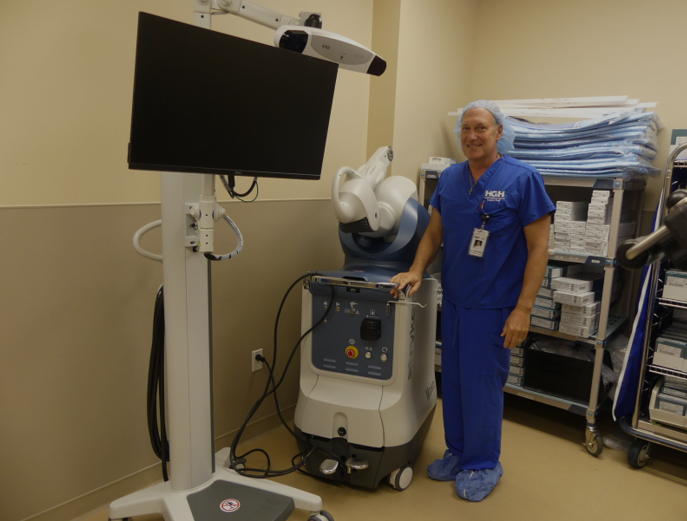The body’s immune system defends the body against diseases caused by bacteria and viruses. However, like soldiers turning against their general, the immune system can betray the body, attacking its own tissues and organs. This is called an autoimmune disease. These disorders come in many forms, attacking different parts of the body in distinct severities and individual ways. While autoimmune diseases can have severe symptoms and do not have a cure, physicians can treat even the most acute manifestations and researchers are looking into new medications and therapies all the time, as well as the causes of autoimmune disorders.
Normal immune systems defend the body against diseases. If the immune system malfunctions, it mistakenly attacks healthy parts of the body. When this happens, it is called an autoimmune disease. Autoimmune diseases can happen to any part of the body. Scientists have discovered almost 90 types of autoimmune diseases, which range from well-known to extremely rare, such as arthritis and scleroderma. Autoimmune diseases affect more than 24 million people in America, which is more than 1 in 15 people, and more than 8 million are at risk for developing them.
The immune system can attack any tissue or organ of the body; in other words, autoimmune diseases can occur in any part of the body. Autoimmune diseases often affect more than one organ or type of tissue, and frequently impact the blood vessels, connective tissues, endocrine glands, joints, muscles, red blood cells, and skin. Common types of autoimmune diseases include type 1 diabetes, which affects the pancreas; Graves’ disease, which affects the thyroid; inflammatory bowel disease, which affects the digestive system; multiple sclerosis, which affects the nervous system; psoriasis, which affects the skin; and rheumatoid arthritis, which affects the joints.
Autoimmune diseases cause a wide range of symptoms, and the exact symptoms are determined by the specific disease. They can cause a variety of symptoms, including pain, fatigue, rashes, nausea, headaches and dizziness. Autoimmune disorders that affect similar areas often have comparable symptoms. For instance, disorders that affect the joints and muscles, such as arthritis, frequently lead to muscle aches and pains, joint pain, stiffness or swelling, muscle weakness and inflammation. In addition, illnesses that attack the digestive tract, such as inflammatory bowel disease, many times cause bloating, constipation, abdominal pain, acid reflux, nausea, food sensitivities and blood or mucus in stool. Furthermore, diseases that damage the skin, such as psoriasis, often generate rashes, itching, dry skin, inflammation and hair loss. Moreover, disorders that infect the nervous system, such as multiple sclerosis, lead to dizziness, headaches, anxiety, depression, difficulty thinking, blurry vision, insomnia, memory issues, migraines, lightheadedness, numbness and tingling.
Just as they have a variety of symptoms, autoimmune diseases have a range of causes. However, these roots of autoimmune disorders are far less clear than their symptoms; in other words, the causes of autoimmune diseases are unknown. However, research indicates that autoimmune diseases most likely are a result of interactions between genetic and environmental factors. Environmental factors include over-exposure to sunlight, childhood poverty, agricultural chemicals, organic mercury and nutrition, specifically the under-consumption of Vitamin D. There are also certain factors that increase the risk of developing autoimmune diseases, such as certain medications, smoking, the presence of one autoimmune disease in the patient’s history, exposure to toxins, obesity and infections. Scientists have come up with several plausible explanations for the causes of autoimmune disorders. One such theory on the cause of autoimmune diseases is that some microorganisms or medicines can cause changes that discombobulate the immune system, which may occur more often in people whose genes make them more susceptible to autoimmune diseases.
Diagnosing autoimmune illnesses is a lengthy process, and it usually takes doctors longer than it does to diagnose other illnesses, because they have similar symptoms to each other and other diseases. To diagnose an autoimmune disease, physicians use a diverse range of tools. The majority of the time, physicians will do a physical examination and take down the medical history of the patient, and have blood drawn to measure their autoimmune blood markers. Blood markers, if too high or too low, indicate that something is wrong with the immune system, suggesting that an autoimmune disorder is at play. Occasionally, biopsies or x-rays and other imaging are needed to detect autoimmune diseases.
Doctors cannot cure autoimmune diseases, but they can prescribe medications to treat their symptoms. The goals of treatment for autoimmune diseases are to control the autoimmune process, maintain the body’s ability to fight disease and to reduce symptoms of the disorder. Medications taken to reduce the symptoms of autoimmune disorders include painkillers, like acetaminophen and ibuprofen; anti-inflammatory medications, like naproxen and aspirin; corticosteroids, like prednisone and cortisone; and immunosuppressants, like infliximab. Recently, physicians have been trying higher dosage immunosuppressants with promising results. For certain autoimmune diseases, physical therapy or–in more extreme cases–surgery may also ease symptoms. Some people try contemporary medications and procedures, such as herbs, acupuncture and chiropractic procedures. However, there is no scientific evidence that these treatments help the symptoms of autoimmune disorders. Some experts say that diet affects autoimmune diseases. Exercise may also help autoimmune disease symptoms. Although there is not conclusive proof that diet and exercise always help symptoms, results vary from patient to patient. What helps one person might not help, or even harm, another.
While autoimmune diseases can have life-threatening manifestations and do not have a cure, doctors can alleviate even the most severe symptoms and scientists are looking into new drugs and treatments all the time, as well as the roots of these disorders. Hopefully one day, an autoimmune disease shall be looked upon as we look up on the common cold today and be cured in an instant.





